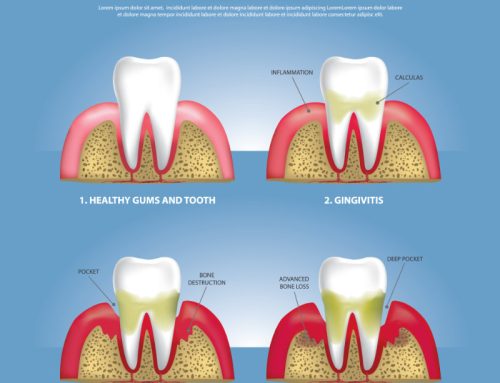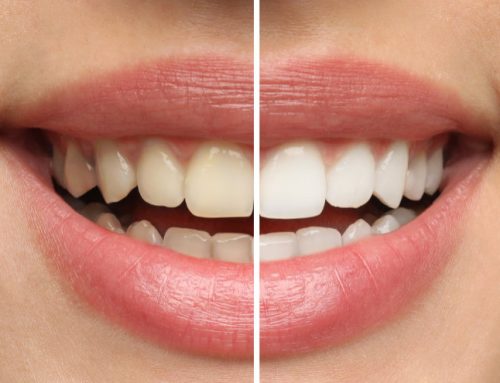What Dental Symptoms Could Be Saying About Your Health!
 At least nine in ten diseases can cause a number of symptoms in your mouth. And this puts your oral hygiene on the front line for identifying and preventing serious health problems from developing silently in your system. From swollen gums, bad breath to burning mouth, various oral symptoms could indicate an underlying health problem.
At least nine in ten diseases can cause a number of symptoms in your mouth. And this puts your oral hygiene on the front line for identifying and preventing serious health problems from developing silently in your system. From swollen gums, bad breath to burning mouth, various oral symptoms could indicate an underlying health problem.
We are all pretty aware that certain dental issues such as stinky breath, pale gums, swollen gums, among others, can all signify gum disease. However, very few people know that other oral problems could indicate problems totally unrelated to oral health. For instance, eroded teeth may indicate a feeding condition or even chronic heartburn.
If you are currently suffering from gum disease, don’t fret! Research has proven that nearly one out of two Americans experience either severe, moderate, or mild gum disease. This equates to 64.7 million people in the United States. Symptoms of gum disease can vary from unhealthy gum swelling, known as gingivitis, to severe bone and tissue damage. And in the most severe gum disease cases, you’ll lose the affected teeth.
Usually, healthy mouths have lots of mucus, bacteria as well as particles of food that form a somewhat tricky, colorless substance known as plaque. Thankfully, through routine brushing and flossing, you can easily eliminate plaque. However, when plaque forms due to poor dental care, it results in gingivitis, a condition characterized by inflamed and bleeding gums.
Simply put, gingivitis is a mild type of gum disease. You can easily prevent, reverse gingivitis by practicing good oral habits such as brushing your teeth at least twice daily, flossing daily, quitting smoking, and going for routine dental examinations.
It is also worth noting that when you fail to remove plaque, it will eventually harden and transform into tartar. Over time, this will result in severe bleeding and periodontitis, which is a severe type of gum disease. With periodontitis, your infected gums will ultimately pull away from your teeth, forming small spaces that can potentially get infected. and if the condition remains untreated, the gums, bones as well as connective tissues that offer support to your teeth will become destroyed.
Research shows that some people are at a relative risk of gum disease. Risk factors of gum disease include diabetes, aging, genetic predisposition, hormonal changes among girls and women, certain drugs, smoking.
Treating gum disease is key to curbing more serious oral as well as other health problems. Below we highlight some proven lifestyle as well as home remedies every health-conscious individual should consider.
- Regularly brush your teeth (twice per day).
- Use a soft toothbrush.
- Replace your toothbrush after every ninety days (Three months)
- Floss daily.
- Schedule regular professional oral checkups and dental cleanings.
- Quit smoking.
Below are some dental symptoms together with how they could be impacting your overall health:
Unhealthy gums could be a tell-tale sign of bad breath:
We all experience bad breath at one time or another, but regular brushing and flossing should get rid of bad breath. But when all your efforts fail to bear any fruit, it could be an indication of severe gum disease. And this is why it’s vital that you immediately contact your dentist to ensure this problem doesn’t impact your teeth and overall health.
On most occasions, your diet is the prime cause of bad breath. In this regard, foods such as spices, garlic, onion, will cause mouth odor for an extended period after you eat them. Those suffering from uncontrolled diabetes, are alcoholics, or regularly eat a protein-dense diet tend to have breadth with fruity or a sweet smell as a result of a severe metabolic problem known as ketoacidosis.
Swollen red gums and what they actually signify:
If you have swollen gums, there are high chances that you are suffering from gum disease. Swollen gums are a serious dental condition, and this is why it is highly recommended that you should schedule an appointment with your dentist if you strongly believe you may be suffering from it. Your dentist inevitably spots it right away. However, you can self-examine for swollen gums by simply drying your gums using either tissue or napkin and looking in the mirror. The gum surface close to your teeth should resemble a basketball, but not shiny and smooth!
Besides swelling, this particular oral condition can also potentially cause red gums. However, it is imperative to note that a significant number of light- and dark-skinned individuals have pink gums. However, some African and Mediterranean origins have dark gums.
What’s causing my dental erosion?
When dental erosion occurs, the tooth surface will gradually wear away. It’s important to note that any type of acid can potentially cause the erosion of healthy tooth enamel, including acid from soda as well as citrus fruits. However, the most common cause of acid buildup in your mouth is GERD or gastroesophageal reflux disease. In case you didn’t know, this is a health condition that causes acid to travel from the stomach to the esophagus, resulting in heartburn.
Another potential cause of enamel erosion is bulimia, an emotional disorder that is characterized by an extreme desire to lose weight. Such people usually overeat before undergoing self-induced fasting or vomiting.
Why is my mouth sour?
If you tend to experience a sour taste quite often, there are higher chances that you could be suffering from GERD, particularly if it’s characterized by chest pain, a sore throat, or a hoarse voice. And apart from this particular issue and dental erosion, GERD can also result in other issues, such as inflammation of the esophagus, esophageal ulcer, and chronic cough. If you are currently suffering from GERD, it’s high time you schedule an appointment with your dentist!
Why is my mouth always dry?
Also referred to as xerostomia, dry mouth is a highly prevalent oral problem. Your risk of developing dry mouth increases with age. It’s worth noting that there are currently 425 drugs that cause xerostmia as a side effect. However, this condition can also occur due to problems beyond just oral health. For example, it’s a common symptom of systemic lupus erythematosus, rheumatoid arthritis, diabetes, scleroderma, and Sjogren’s syndrome. If your dry mouth fails to go away after a while, you should consult your dentist. Some clinics can treat dry mouth.
What about my loose teeth?
If you currently have a loose tooth or teeth, you must seek immediate medical attention. A loose tooth may be a symptom of infected gums or gum disease, which is a serious dental problem. Bacteria that grow beneath your gum line can potentially cause issues, as well as a bone, breaking down, resulting in your teeth separating from the gums.
And as more bone and tissue get destroyed, the more increasingly you are to lose your healthy teeth as they loosen up and need to be removed. Lastly, if your teeth are loose, it’s likely that you are having an infection!
If you are looking for a dentist, HPS Advanced Dental Care would love to see you. Dr. Heather is gladly accepting new patients.
We are located at 4741 24 Mile Rd. Shelby Township, MI 48316, and we can be reached at (248) 652-0024. We look forward to meeting you!





